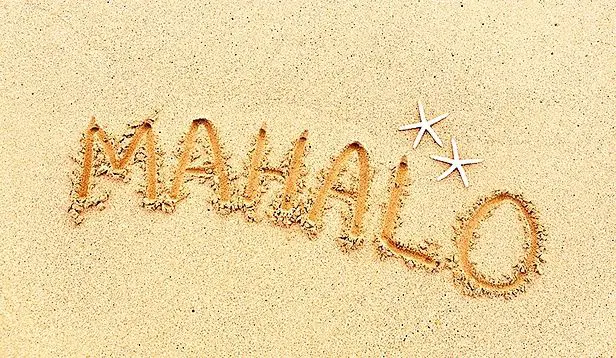One aspect of Hawaiian culture that resonates with visitors is the use of unique and beautiful words that hold deep meanings.Let’s embark on a linguistic journey through the captivating language of Hawaii!
Section 1: Understanding the Spirit of Aloha
1.1 The Essence of Aloha:
“Aloha” is more than just a word in Hawaiian culture. It embodies the spirit of love, compassion, and harmony. It is a way of life that embraces kindness and respect for oneself, others, and the natural environment. Understanding the meaning of “aloha” sets the foundation for comprehending other Hawaiian words and their significance.
1.2 The Deep Meaning of Mahalo:
Among the most well-known Hawaiian words is “mahalo,” which is often translated as “thank you.” However, its meaning goes beyond a simple expression of gratitude. Mahalo reflects appreciation, respect, and a sense of interconnectedness. It acknowledges the value and contribution of others, fostering a culture of gratitude in Hawaii.
Section 2: 12 Essential Hawaiian Words to Remember
2.1 Aloha:
As mentioned earlier, “aloha” is the quintessential Hawaiian word that encompasses love, affection, peace, and compassion. It serves as a heartfelt greeting, farewell, and an expression of goodwill.
2.2 Ohana:
The word “ohana” means family, extending beyond blood relations. It encompasses the idea of a chosen family and emphasizes the strong bond and support system within the community.
2.3 Pono:
“Pono” signifies righteousness, balance, and harmony. It refers to living in alignment with moral values and doing what is right for oneself, others, and the environment.
2.4 Hana Hou:
“Hana Hou” translates to “encore” or “do it again.” It is an uplifting phrase that encourages perseverance, resilience, and a positive attitude in the face of challenges.
2.5 Mahina:
“Mahina” refers to the moon and holds symbolic significance in Hawaiian culture. It represents feminine energy, transformation, and the connection between humans and nature.
2.6 Mana:
“Mana” represents spiritual power and energy. It is the life force that flows through all living things and is associated with personal strength, authority, and divine influence.
2.7 Makai and Mauka:
“Makai” refers to the ocean or the direction toward the sea, while “mauka” signifies the mountain or the direction toward the mountains. These words are commonly used for navigation and give a sense of direction on the islands.
2.8 Kuleana:
“Kuleana” represents one’s responsibility and personal sense of duty. It emphasizes taking ownership and being accountable for one’s actions and the well-being of the community.
2.9 Malama:
“Malama” means to care for, protect, and preserve. It encourages stewardship of the land, ocean, and cultural heritage, promoting sustainability and harmony with nature.
2.10 Aloha Aina:
“Aloha Aina” translates to “love of the land.” It signifies a deep connection and reverence for the natural environment, highlighting the importance of environmental conservation.
2.11 Mele:
“Mele” refers to music or song in Hawaiian. It is an integral part of the culture, often accompanied by dance, storytelling, and expressions of joy or emotions.
2.12 Hula:
“Hula” is a traditional Hawaiian dance form that combines movement, storytelling, and cultural expression. It is a vibrant art form that reflects the history, legends, and spirit of the Hawaiian people.
Section 3: Embracing the Hawaiian Language
3.1 Preserving the Hawaiian Language:
The Hawaiian language, known as “olelo Hawaii,” holds immense cultural value. Efforts have been made to revitalize and preserve the language, ensuring its transmission to future generations.
3.2 Pronunciation and Cultural Sensitivity:
When using Hawaiian words, it is important to learn and respect their correct pronunciation. This shows cultural sensitivity and helps to honor the language and the people who speak it.
3.3 Embracing Hawaiian Words in Daily Life:
Incorporating Hawaiian words into your daily life can deepen your connection to the culture. Whether in greetings, expressing gratitude, or describing the beauty of nature, using these words can foster a greater appreciation for the Hawaiian way of life.
Section 4: Resources for Learning Hawaiian Words
4.1 Online Language Resources:
Various online platforms offer resources to learn Hawaiian words and phrases. Websites, mobile apps, and online courses can provide valuable language lessons and cultural insights.
4.2 Local Workshops and Classes:
If you have the opportunity, attending local workshops or classes led by native Hawaiian speakers can be an immersive and enriching experience. Learning from experts and interacting with the local community can enhance your understanding of the language and culture.

